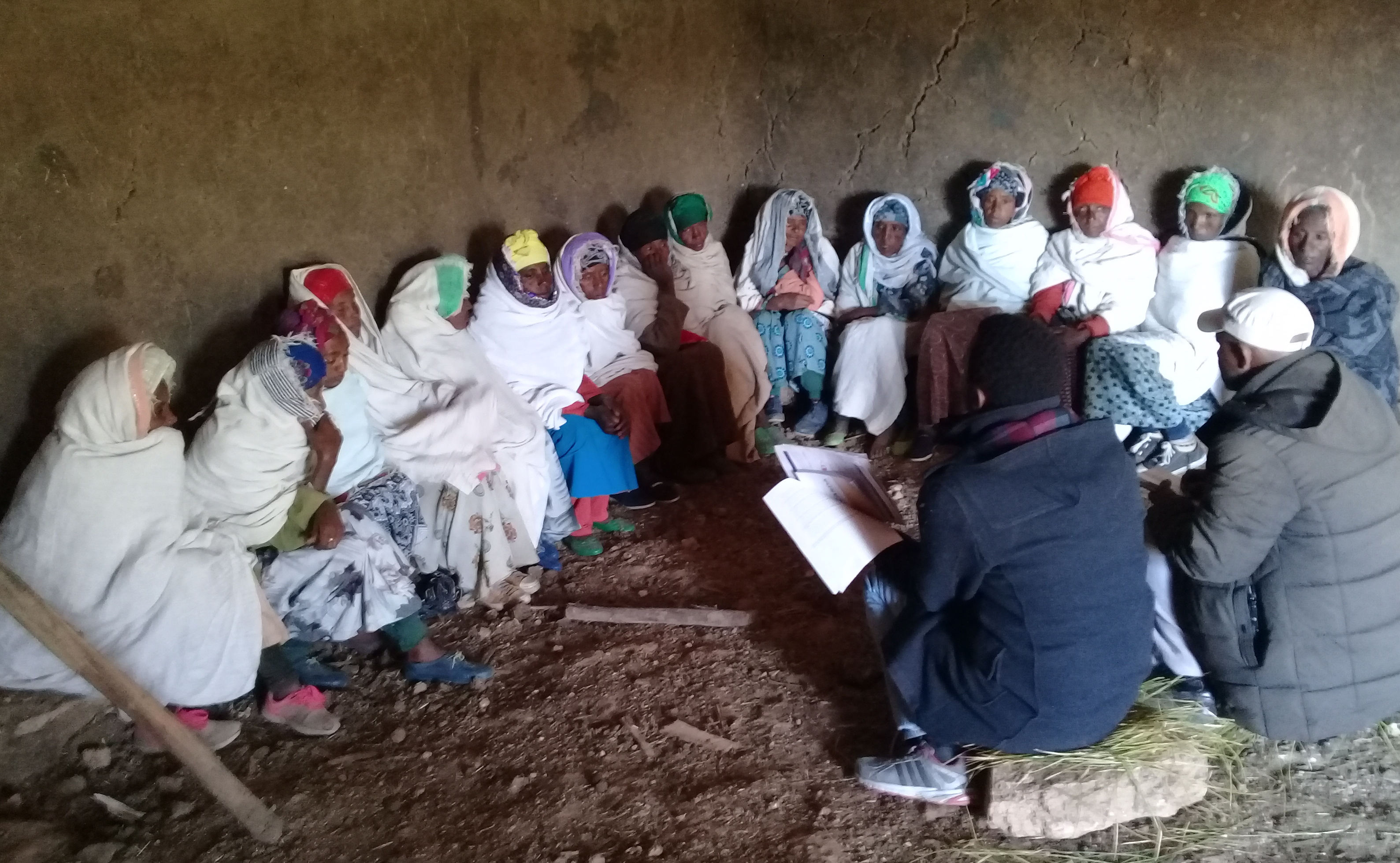Written by Mamusha Lemma, Biruk Alemu, Mesfin Mekonnen and Barbara Wieland

(photo credit:ILRI/Mamusha)
In Ethiopia, improved access to veterinary drugs has led to their increasing use in food-producing animals. But the use of these drugs in livestock is rarely supervised by trained veterinarians and livestock keepers often do not know how the drugs work or how they should be used to achieve the intended effect.
Veterinary services in the country focus on preventive vaccination and treatment of sick animals. The animal health extension service that ought to educate and advise community members about integrated animal health management strategies is limited. Community members, including livestock keepers, have limited access to animal health education, advisory and training services.
As a result, livestock keepers often buy veterinary drugs from roadside markets and self-treat their animals without considering the consequences of administering these drugs themselves. Most of these small-scale farmers have limited knowledge of the link between misuse of veterinary drugs and the emergence of antimicrobial resistance (AMR), which results in treatment failures in animals and humans.
To address this knowledge and information gap, the CGIAR Research Program on Livestock in Ethiopia tested a community-based animal health extension approach using ‘community conversations’ to engage community members and local service providers in collaborative learning and joint action processes to increase AMR awareness. The research team facilitated conversations in two livestock program sites (Yabello District in Borana Zone of Oromia Region and Menz Gera District in the Amhara Region). About 116 (50 female) community members and local animal health service providers participated in a facilitated dialogue and social learning process. It explored the perspectives and practices of community members about the use of antimicrobials use and AMR.
Access to veterinary and animal health extension services plays an important role in increasing awareness and knowledge of men and women community members about antimicrobial resistance. In Yabello, due to limited access to veterinary and animal health extension services, livestock keepers said they self-treat their animals using different treatment options.From the conversations, it emerged that community members use a stepwise approach to treating sick animals. First, they treat sick animals with traditional medicines. If these do not work, then they buy drugs from veterinary pharmacies or roadside markets to give their animals. A male participant in Yabello said that they call on community animal health workers for help ‘only when we have difficulty or when self-treated animals don’t respond to drugs', and that is also the time they may opt to go to a veterinary clinic.
Most community members initially found it difficult to conceptualize or describe AMR when asked to describe the problem. Upon further probing, they described situations where drugs do not work and where diseases tolerate drugs. A male participant said, ‘we have noted that some animals don’t get cured even after long-term treatment.’
The need for developing the capacity of local animal health service providers so that they can effectively communicate with community members and provide them with advisory and mentoring support was evident. While the technical areas of antimicrobials use and resistance were not new to local partners, they found communicating these issues with community members in understandable terms challenging.
In both sites, local partners recognized the role of community conversations in facilitating collaborative learning and helping in the co-creation of concepts and expressions that are meaningful to community groups. A research partner in Yabello said, ‘I never thought that communicating with community members would be challenging. I have learned that communicating technical messages in understandable way requires communication skills and understanding the recipients' thinking frame and reasoning.’
In addition to raising awareness of community members about antimicrobial resistance, the community conversations strengthened the capacity of local animal health service providers. Local partners practised facilitating deeper levels of reflection and learning among community groups by contextualizing technical issues and, in the process, they learned from the experiences of community groups. New learning and insights into an issue in question happens through dialogic and self-reflective practice, which results in attitudinal change and motivation to act.
Read the full report on community conversations on antimicrobials use and resistance